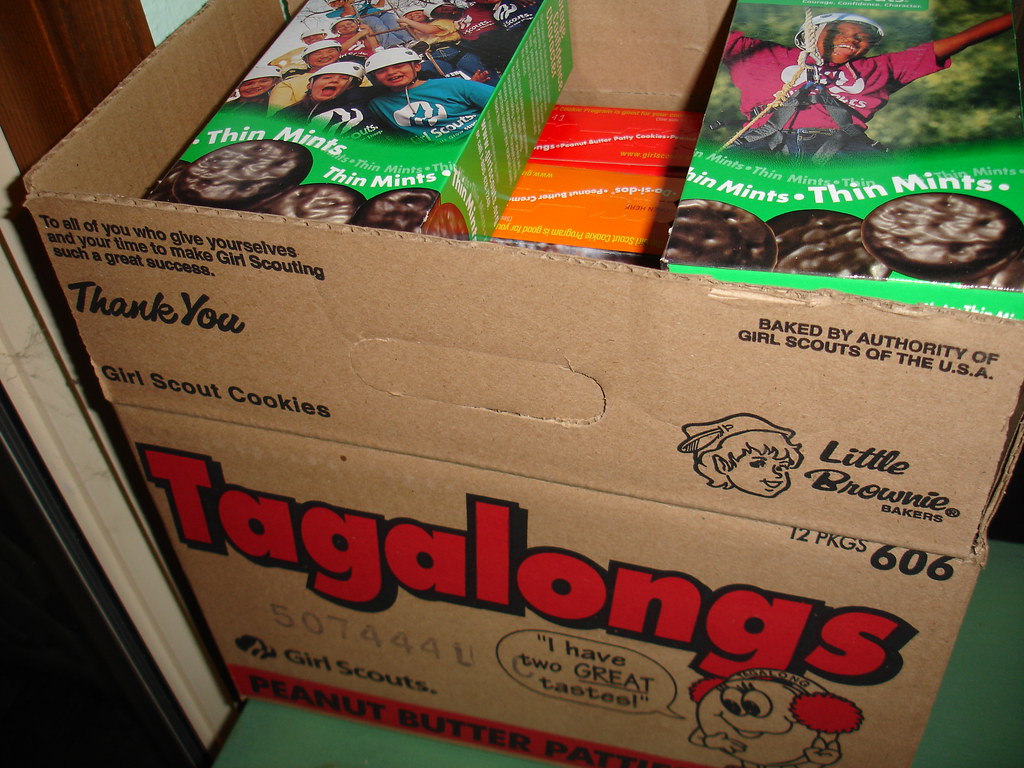Girl Scout cookies are one of the United States’ most beloved treats, yet a recent study has sparked accusations of the cookies being unsafe for consumption. While students of Fauquier High School (FHS), who are members of the program, had little intel on this issue, it is concerning for many consumers of the product.
The Girl Scouts organization has been holding its annual cookie-selling fundraiser for over 100 years and it has always been a massive hit in communities across the US. Girl Scout cookies typically make around eight hundred million dollars in sales annually, selling over two hundred million boxes of cookies. On Dec. 27, 2024, GMO Science, a website used for education and parental advice, published an article claiming that Girl Scout Cookies contain toxins and harmful chemicals. While the authors’ credentials made the article believable initially, many other more reputable studies have disproved the original article.
On Feb. 6, 2025, Girls Scout Blog posted an update regarding the issues. According to the organization, “Girl Scout Cookies are safe to consume and are manufactured in accordance with all food safety regulations.” They claimed that the chemicals found in the cookies were present in almost all foods, and did not make their product dangerous, saying, “While such occurrences are not unique to Girl Scout Cookies, our trusted baking partners continue to ensure the integrity of our recipes and the safety of all Girl Scout Cookie products in accordance with federal regulations and Global Food Safety initiative standards.”
While the original study published was not exactly false, the information was twisted in a way that confused consumers. The experiment itself was performed on only 25 cookies, which is not large enough of a test group to merit that drastic of an accusation. While potentially dangerous chemicals are present in the treats, they could also be found in many other processed foods and are not above the FDA-approved standards, which means they are safe for consumption.
Members of the Girl Scouts attending Fauquier High School (FHS) did not have much to say regarding this issue. According to them, their troops have not addressed it, and the conversation was mainly regarding the large-scale cookie production and the organization’s higher-ups. Many of them were unaware of the controversy at all. One student, freshman Jelena Edwards, was aware of the issue but not overly concerned. She felt consumers were more upset about the price of the products than their contents. “It’s really just the price that people won’t buy from us,” She stated. She did not feel many people were upset about the accusations, however, FHS math teacher Jennifer Feehan, the mother of a girl scout, had a different experience. “There were people that would scream at the Girl Scouts when they were doing booths, saying that they wouldn’t buy them because Girl Scouts needed to be educated and that the cookies that they were selling were killing the people that they were selling them to.” While Feehan said it was a rare occurrence, there were definitely some people passionate enough about the issue to yell at little girls.
However, students who purchased the cookies this season were not upset about this. Freshman Parker Bishop stated that “[the cookies are] really good.” Bishop and other students agreed that the alleged dangers of the cookies had little influence on them and that they felt no less inclined to purchase them in the future.
In the end, this topic features a lot of bias. While hard facts are difficult to find, research suggests that the data was taken out of context. Regardless, Girl Scout cookies will likely remain popular for years to come. Edwards said she hopes the tradition of Girl Scout cookies will continue so “younger girls [get] to experience it.”








